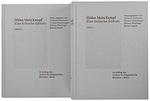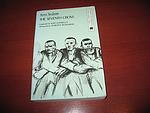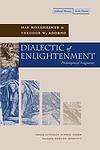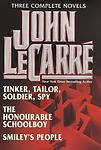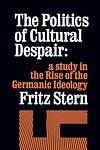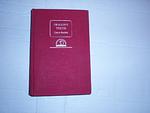The Greatest "Political, Germany" Books of All Time
Click to learn how this list is calculated.
This list represents a comprehensive and trusted collection of the greatest books. Developed through a specialized algorithm, it brings together 300 'best of' book lists to form a definitive guide to the world's most acclaimed books. For those interested in how these books are chosen, additional details can be found on the rankings page.
Genres
The "Political" category of books encompasses works that explore the theory, practice, and history of government and politics. These books may cover topics such as political ideologies, political systems, political institutions, political movements, and political leaders. They may also examine the relationship between politics and other areas of society, such as economics, culture, and international relations. Political books can be both informative and thought-provoking, offering readers insights into the complexities of the political world and the challenges of governing in a democratic society.
The category of "Germany" in terms of books would encompass literature that is set in or about Germany, its history, culture, people, and society. This could include works of fiction, non-fiction, memoirs, biographies, and historical accounts that explore various aspects of German life, such as the country's politics, economy, art, music, literature, and more. The category would be of interest to readers who are fascinated by Germany's rich and complex history, its contributions to world culture, and its ongoing role in shaping global affairs.
Countries
Date Range
Reading Statistics
Click the button below to see how many of these books you've read!
Download
If you're interested in downloading this list as a CSV file for use in a spreadsheet application, you can easily do so by clicking the button below. Please note that to ensure a manageable file size and faster download, the CSV will include details for only the first 500 books.
Download-
1. The Tin Drum by Günter Grass
The novel tells the story of Oskar Matzerath, a boy who decides on his third birthday that he will stop growing and remain a three-year-old forever. Oskar is gifted with a tin drum by his mother, which he uses to express his emotions and thoughts. Living in Danzig during the rise of Nazi Germany, Oskar's refusal to grow is a form of protest against the adult world. The book is a blend of magical realism and historical fiction, providing a unique perspective on the horrors of World War II and the post-war era in Germany.
-
2. The Spy Who Came in From the Cold by John le Carré
This novel is a fascinating tale of espionage during the Cold War, centered around a British intelligence officer who is seemingly ready to end his spy career. However, he is given one last mission before his retirement: to bring down the head of East German Intelligence. As he navigates the dangerous world of spies and double agents, he is forced to confront his own past and the sacrifices he has made for his country. The story is a complex exploration of morality, loyalty, and the personal cost of political conflict.
-
3. Communist Manifesto by Karl Marx, Friedrich Engels
This influential political pamphlet advocates for the abolition of private property, the rights of the proletariat, and the eventual establishment of a classless society. The authors argue that all of history is a record of class struggle, culminating in the conflict between the bourgeoisie, who control the means of production, and the proletariat, who provide the labor. They predict that this struggle will result in a revolution, leading to a society where property and wealth are communally controlled.
-
4. Das Kapital by Karl Marx
This influential work is a comprehensive critique of political economy, exploring the complex nature of capitalism, its production processes, and its societal impact. The book delves into the intricacies of commodities, labor theory of value, surplus value, and exploitation, arguing that capitalism is inherently unstable and prone to periodic crises. It also posits that the capitalist system ultimately leads to the concentration of wealth in fewer hands, causing social inequality and paving the way for its own demise. The book is widely regarded as a foundational text in the development of socialist and communist ideologies.
-
5. The Wealth of Nations by Adam Smith
This influential economic book presents a groundbreaking theory that argues for free market economies. The author posits that individuals acting in their own self-interest within a system of natural liberty will result in societal benefit, a concept often referred to as the "invisible hand" theory. The book also critiques mercantilism and explores concepts such as the division of labor, productivity, and free markets. It is widely considered one of the foundational texts in the field of economics.
-
6. The Origins of Totalitarianism by Hannah Arendt
The book explores the roots of totalitarian systems, particularly focusing on Nazi Germany and Stalinist Russia. It delves into the historical, social, and political circumstances that led to the rise of these oppressive regimes, including anti-Semitism, imperialism, and the decline of the nation-state. The author further discusses the nature of power, the role of propaganda, and the manipulation of the masses in these systems, providing a comprehensive analysis of totalitarianism.
-
7. Economy and Society by Max Weber
"Economy and Society" is a comprehensive analysis of the relationship between economy and society, focusing on the role of social actions and their impact on economic systems. The book presents a theoretical framework for understanding how economic and social structures influence each other, including the role of bureaucracy, power, and authority. The author also introduces his famous concept of the "Protestant Ethic", linking the rise of capitalism to certain aspects of Christian beliefs. The book is considered a fundamental text in sociology and economics, providing a deep understanding of social and economic phenomena.
-
8. Eichmann in Jerusalem: A Report on the Banality of Evil by Hannah Arendt
This book is a thought-provoking exploration of the trial of Adolf Eichmann, a major organizer of the Holocaust. The author argues that Eichmann was not a fanatical ideologue, but rather an ordinary individual who simply followed orders and bureaucratic procedures, highlighting the terrifying potential for evil in any system that values obedience over personal responsibility. The concept of the "banality of evil" is introduced, suggesting that horrific acts can be committed by ordinary people under certain conditions.
-
9. Mein Kampf by Adolf Hitler
This book is a two-volume work written by a prominent dictator during his imprisonment in 1924. It outlines his political ideology and future plans for Germany, combining elements of autobiography with an exposition of his views on race, nationality, and governance. The author's main thesis is that the German-speaking 'Aryan' race is superior to all others, and that it is the duty of the state to preserve the purity of this race through policies of racial segregation, expansionism, and extermination. The book also contains detailed discussions on the author's hatred towards Jews, Marxism, and the parliamentary system.
-
10. The Plot Against America by Philip Roth
This novel presents an alternate history where aviator-hero and rabid isolationist Charles Lindbergh is elected President in 1940, leading the United States towards fascism and anti-Semitism. The story is narrated through the perspective of a working-class Jewish family in Newark, New Jersey, experiencing the political shift and its terrifying consequences. The narrative explores themes of prejudice, fear, patriotism, and family bonds under the shadow of a fascist regime.
-
11. The Lost Honour of Katharina Blum by Heinrich Böll
"The Lost Honour of Katharina Blum" is a story about a young woman who becomes the target of a media smear campaign after she falls in love with a man who is suspected of being a political radical. The media's relentless invasion of her privacy and the negative portrayal of her character lead to tragic consequences, highlighting the destructive power of sensationalist journalism. The novel is also a critique of the political climate in Germany during the 1970s.
-
12. The Protestant Ethic and the Spirit of Capitalism by Max Weber
This book is a sociological study that explores the relationship between the ethics of ascetic Protestantism and the emergence of the spirit of modern capitalism. The author argues that the religious ideas of groups such as the Calvinists played a role in creating the capitalistic spirit. The work is noted for its rigorous methodology and its contribution to the broader understanding of the origins and development of capitalism. It has been widely influential across social sciences, especially in sociology and economics.
-
13. Mr Norris Changes Trains by Christopher Isherwood
This novel follows the story of a young Englishman living in Berlin during the early 1930s, who meets and befriends the charming yet mysterious Mr. Norris. As their friendship develops, the protagonist becomes entangled in Mr. Norris's world of political intrigue, espionage, and shady business dealings. The novel is a vivid portrayal of the decadence, political tension, and looming danger of Berlin on the brink of Nazi rule.
-
14. Decline of the West by Oswald Spengler
"Decline of the West" is a comprehensive historical and philosophical work that explores the rise and fall of civilizations. The author argues that every civilization has a life cycle, from birth to maturity and finally to decline. He suggests Western civilization is in its final stage of decline, comparing it to the end phases of the Greco-Roman civilization. The book also introduces the concept of 'pseudomorphosis', where a civilization is so deeply influenced by a previous culture that it suppresses its own authentic culture.
-
15. The Rise and Fall of the Third Reich by William L. Shirer
This book provides a comprehensive history of Adolf Hitler's Third Reich, from its inception to its downfall during World War II. The author, an American journalist who reported from Germany and Austria during the Nazi era, uses firsthand accounts, interviews, and Nazi documents to detail Hitler's rise to power, the mechanisms of the Nazi state, and the events leading to and during World War II, including the Holocaust. The book concludes with an analysis of why the Third Reich fell and the aftermath of its collapse.
-
16. The Seventh Cross by Anna Seghers
"The Seventh Cross" is a gripping tale set in Nazi Germany that revolves around seven men who escape from a concentration camp. The camp commandant erects seven crosses, vowing to hang each escapee on their return. The story primarily follows one escapee, who manages to evade capture and make his way back to his hometown. The narrative explores the psychological terror imposed by the Nazi regime, the resilience of human spirit, and the subtle forms of resistance within the German populace.
-
17. Dialectic Of Enlightenment by Max Horkheimer, Theodor Adorno
"Dialectic of Enlightenment" is a seminal philosophical work that explores the nature of enlightenment and its paradoxical relationship with the concept of reason. The authors argue that the Enlightenment's quest for knowledge, freedom, and autonomy has inadvertently led to the opposite: a form of domination and control through instrumental reason. They examine how the Enlightenment's rationality, once aimed at liberating individuals from myth and superstition, has devolved into a tool of oppression, giving rise to totalitarian systems and a culture industry that manipulates mass society. The book delves into various cultural artifacts, including literature, film, and popular culture, to illustrate how enlightenment has become self-destructive, ultimately questioning the possibility of true emancipation in a society governed by the very rationality that was supposed to set it free.
-
18. Smiley's People by John le Carré
In this espionage thriller, a retired British intelligence officer, known for his bespectacled and unassuming demeanor, is called back into action when one of his former assets, a Soviet general, is found murdered. The investigation leads him across Europe, rekindling old rivalries and uncovering a complex web of betrayal and deception. As he delves deeper into the case, he must confront his own past and a formidable Soviet spymaster, ultimately leading to a high-stakes game of intelligence and counterintelligence, where the stakes are not just personal, but have far-reaching implications for the security of the West.
-
19. Forever Flowing by Vasily Grossman
The book is a poignant exploration of life, freedom, and the human condition, set against the backdrop of the Soviet Union after World War II. It follows the story of a former Gulag inmate who, upon his release, grapples with the profound changes in society and his own personal struggles. Through his journey, the narrative delves into the nature of totalitarianism, the resilience of the human spirit, and the search for truth and redemption amidst the oppressive political landscape of the time. The protagonist's reflections and interactions with other characters offer a deep meditation on the cost of war, the meaning of liberty, and the enduring quest for justice.
-
20. The Structure And Practice Of National Socialism by Franz Neumann
The book provides a comprehensive analysis of the political, social, and economic systems of National Socialism in Germany from its rise to power to its functioning during World War II. It delves into the regime's ideologies, the role of terror and propaganda, the structure of the state, and the interplay between different power groups within the Nazi hierarchy. The author critically examines how the regime sought to create a totalitarian state, with a particular focus on the suppression of individual freedoms and the mechanisms of control used to maintain its authority. Through this exploration, the book offers insights into the complexities and contradictions of the Nazi system, as well as the devastating impact it had on society and the world at large.
-
21. The Politics Of Cultural Despair by Fritz Stern
This book is a critical historical analysis that delves into the intellectual roots of cultural pessimism in Germany leading up to the rise of National Socialism. It examines the works and influence of three prominent conservative critics from the late 19th and early 20th centuries, who lamented the perceived decline of traditional values and the erosion of social cohesion in the face of modernity and liberalism. The author argues that their reactionary critique of contemporary culture and their yearning for a return to an idealized past laid the groundwork for the ideological underpinnings of fascism, demonstrating how cultural despair can be manipulated into political extremism.
-
22. Six Studies In Communism by Arthur Koestler, Richard Crossman
This book is a compilation of six essays that delve into the ideological and practical facets of communism. Each study examines different aspects of communist theory and practice, from its origins and evolution to its implementation in various countries. The authors critically analyze the successes and failures of communist systems, exploring the impact on societies that have adopted these principles. The essays also consider the psychological and sociological effects of living under communist regimes, providing a multifaceted perspective on one of the most influential political ideologies of the 20th century.
-
23. A Comparative Study Of Total Power by Karl Wittfogel
The book in question is a scholarly examination of the concept of 'hydraulic civilization,' a term used to describe societies that manage large-scale water projects such as irrigation and flood control. The author argues that the bureaucratic structures necessary to control water resources in arid regions historically led to the centralization of power and the development of autocratic or despotic forms of government. Through comparative analysis, the work explores how the management of water resources influenced social, economic, and political structures, and how this 'total power' shaped the civilizations in question, with a particular focus on Asia. The study delves into the relationship between natural environments, technological capabilities, and the evolution of political systems.
-
24. Dragon's Teeth by Upton Sinclair
"Dragon's Teeth" is a historical novel set during the rise of Nazi Germany, following the life of a wealthy American named Lanny Budd. Lanny, who is politically connected and fluent in several languages, becomes involved in the political intrigue of the era, including the machinations of Hitler and his inner circle. The novel explores the political, economic, and social conditions that allowed the Nazi party to rise to power, and the consequences for those who stood in its way.
-
25. The Burden of Our Time by Hannah Arendt
"The Burden of Our Time" is a profound exploration of totalitarianism and the nature of power. The author delves into the rise of authoritarian regimes in the 20th century, particularly focusing on the Nazi and Stalinist systems. The book examines the socio-political conditions that enable such regimes to seize power, and the mechanisms they use to maintain control. It also presents a philosophical analysis of the human condition, exploring themes of freedom, authority, and the public and private realms of life.
Reading Statistics
Click the button below to see how many of these books you've read!
Download
If you're interested in downloading this list as a CSV file for use in a spreadsheet application, you can easily do so by clicking the button below. Please note that to ensure a manageable file size and faster download, the CSV will include details for only the first 500 books.
Download







